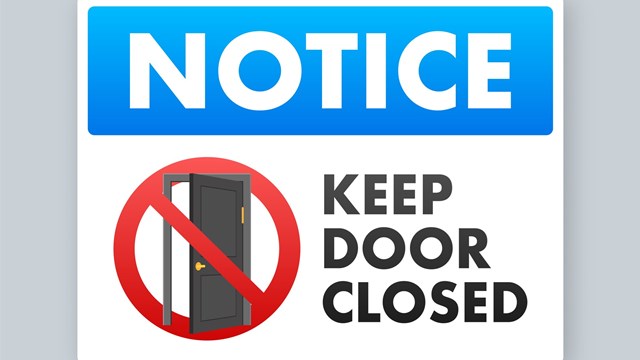For many New Jersey co-op shareholders and condo unit owners, the question of subletting their apartment can be one of simple convenience, or major necessity. Perhaps they've been given an extended out-of-town work assignment and need someone to watch their place (and pay their maintenance fees) while they're away, or maybe economic times are tough and they want to bring in a roommate to occupy the spare bedroom and help with expenses.
Regardless of the reason for the sublet, its success or failure depends on the association's board and established bylaws. For some, the plan to sublet their unit will stall at the starting gate. For others, the process can be smooth and relatively painless.
Sublet Restrictions
Compared to years past, not too many shareholders are subletting their co-op properties these days. According to the people who keep tabs on these trends, this is largely due to fluctuations in the real estate market. When properties are selling well, the sublet rate drops. Conversely, when the market stalls, more shareholders turn to subleases.
"The underlying reason for subletting is that people can't sell their units," says Jim Buckley of Buckley Management in Cliffside Park, "There is little or no subletting right now. One building we had that was 15 percent sublet in the 1990s now only has two out of 200 units sublet."
Gary Wilkin of Mahwah-based Wilkin Management Group adds, "Subletting is not overwhelmingly popular because there are usually a lot of restrictions that go with it."
Those restrictions are reduced to one when it comes to condos. Owners of condos can lease to whomever they want, whenever they want," says Paul Santoriello of Taylor Management Co., in Morristown, New Jersey. "The only restrictions are on short-term leasing. Every governing document is different, but in general, management is looking for leases greater than six months. Usually, they're looking for a year or more."
That caveat stems from the formerly fashionable habit that many condo owners had of buying multiple properties, setting them up with furniture, hiring a maid service and renting them out to executives or other individuals for short-term stays, Wilkin says. That practice caused hardship for the condo community, creating a transient population in areas that were looking for long-term stability.
Beyond that one rule, however, condos have few restrictions when it comes to subletting. "In a condo or townhouse, the association does not have the right to restrict subletting," Wilkin says. This is because condo owners actually own the physical property in which they live, versus co-op owners who own shares of the corporation and live in their apartments under a proprietary lease.
"The only thing an association can ask for is to have information on the new tenant and possibly having a copy of the lease between the unit owner and that tenant. Otherwise, they can sublet without restrictions," Wilkin says.
The Tricky Part
Though the popularity of the practice may have been waning over the last few years, the professionals say that getting approved for a sublet has become somewhat less restrictive, due in large part to a bill sponsored by New Jersey state Senator Gerald Cardinale and enacted in 1998. The bill prohibits co-op boards from imposing unreasonable restrictions on shareholders who want to sublet their apartments.
In the past, "co-ops were restricting sublets and causing people hardships," Buckley says. Now those restrictions must fall under certain guidelines—and if a shareholder can show that they are unable to sell their unit for the same price they paid plus improvements, then the board must allow them to sublet.
According to a New York Times article published at the time of the law's enactment, New Jersey's subletting law applies, for the most part, to co-ops with 10 or more units. It exempts buildings if their subletting rules "were established when the co-op was created, or when control of the board was transferred from the developer to the shareholders, or if they were emphasized in the offering document as an absolute condition of ownership and were consistently and strictly enforced." Basically, the law eliminated a board's ability to say no to subletting simply for the sake of saying no. Today, there must be a strong reason or established rule outlawing the procedure.
Allowing shareholders to sublet in instances of financial hardship "is in the best interest of the board," Wilkin says. If the shareholder stops paying their bills, "it could have a negative effect on the building as a whole."
One of those reasons might have to do with the lending institution that finances the cooperative. "If you have to refinance or change a mortgage, lenders could look adversely on too many sublets."
Also, Buckley says, in most cases, people have lending agreements where they have borrowed against their co-op stock. They will have signed a recognition agreement, which typically has a no subletting clause in it. "It's required that a shareholder get a waiver from their lender before a sublet can take place," Buckley says. This is necessary because it's a three-way agreement between the lender, the co-op and the resident. It's not a significant stumbling block to a sublease, he adds. "It's just an administrative hassle."
Other restrictions include issues of time similar to what exists for the condo. In a co-op, the sublet may have to run at least one year, again to avoid the creation of a transient community. It also may be limited to a total of two years, meaning the shareholder cannot sublet for longer than that timeframe. There may be other rules that limit the shareholder to only subletting once over the lifetime of their participation in the co-op. It's a mixed bag, all ultimately determined by the governing documents.
When the Okay is Given
If a co-op does allow subletting, then the process of getting a new face into the building is actually quite similar to the process that the shareholder initially went through to secure their own place within the co-op community. The prospective sub-tenant will be subject to financial scrutiny to assure that he or she is able to handle the fiscal responsibility of living in the building. They also may go through an interview so that the board and other concerned parties can find out more about their new, prospective neighbor. Then the board will request, too, a copy of the standard lease agreement signed by the sub-tenant and the shareholder. "The lease would have to be approved," Wilkin says. The renter must agree to adhere to all rules and regulations while living within the co-op.
Ultimately, however, the sub-tenant will have minimal contact with building management because the agreement is between him or her and the shareholder. When something goes awry in the apartment, the shareholder is still responsible for making sure the repairs are made.
"You'll want the sub-tenant to have the same emergency numbers and management information as the shareholder though," Wilkin says. "If there's a problem, management needs to know. The renter has an indirect relationship with the co-op as well as a direct relationship with the shareholder."
Just a Visit
The issue of non-residents taking up residence (even temporarily) in an HOA or co-op/condo building isn't strictly limited to subtenants. What about guests, for example? Where do family members, friends and other potential long-term guests fall in the subletting spectrum? According to the pros, it depends somewhat on the circumstances. If someone moves into a co-op unit and lives there alongside the shareholder, there is no problem. There are no special fees, and no paperwork is generally necessary.
If, however, the person moving in is a direct family member (a parent, for example, or a child) then they are "allowed to live there as if they're the shareholder," Buckley says. "It wouldn't be considered a sublet." A direct family member would be considered a parent, spouse or child.
If the housing market finds itself mired more deeply in the soft end of the price spectrum in 2007, experts say a sublet boom might be born, and many more shareholders may attempt to run the subletting gauntlet.
According to Buckley, it's worth it for anyone considering subletting to familiarize themselves with their building's governing documents and perhaps have a discussion with management to ensure that all requirements are met. Because after all, a happy sub-tenant and a happy board can make for a very relieved and stress-free shareholder—a positive thing for everyone involved.
Liz Lent is a freelance writer and a frequent contributor to The New Jersey Cooperator.







2 Comments
Leave a Comment